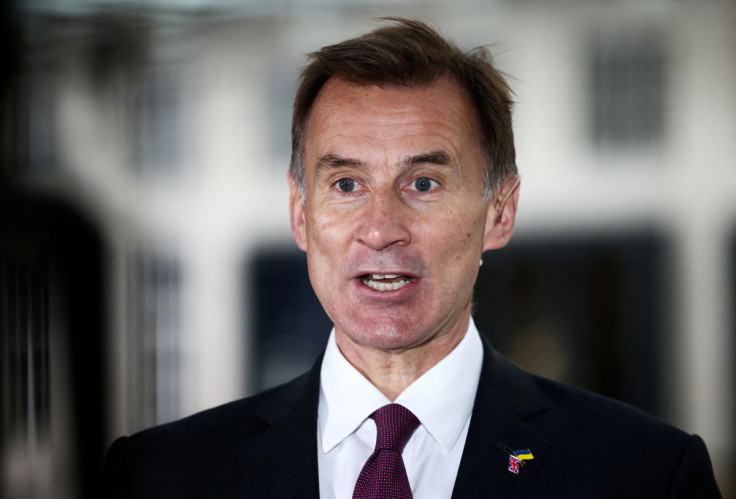Climate Advisers Criticise Jeremy Hunt's Net Zero Target Claims
The absence of clear and immediate strategies to decarbonise these sectors has raised doubts about the government's commitment to its climate pledges.

Jeremy Hunt's assurances that the government can simultaneously meet climate targets while permitting increased oil and gas extraction from the North Sea have drawn criticism from Piers Forster, the interim chair of the independent Climate Change Committee (CCC).
The criticism centres around the perceived lack of concrete policies and sufficient funding to drive the necessary changes across various sectors to achieve the ambitious net-zero goal.
Climate experts and environmental advocates contend that rhetoric must be backed by robust and immediate action to address the climate crisis effectively.
Publicly challenging the chancellor on Sunday, Forster questioned Hunt's stance, particularly in light of Hunt using predictions from the CCC to support the government's oil and gas licensing bill.
Hunt defended the bill on the BBC's Today programme, citing the CCC's predictions: "The independent panel for climate change that we have for this country is very clear that even when we reach net zero in 2050, we will still get a significant proportion of our energy from fossil fuels, and domestic oil and gas is four times cleaner than imported oil and gas."
The CCC's criticism extends to various sectors, including transportation, housing and agriculture, where substantial emissions reductions are required to meet net-zero targets.
The absence of clear and immediate strategies to decarbonise these sectors has raised doubts about the government's commitment to its climate pledges.
Transportation, a significant contributor to greenhouse gas emissions, has seen limited progress in transitioning to sustainable alternatives.
The lack of a comprehensive plan to promote electric vehicles, improve public transportation and incentivise sustainable travel choices has drawn criticism from climate advisers.
Housing, another crucial area for emissions reduction, has faced challenges in implementing energy-efficient measures and sustainable construction practices.
Climate advisers argue that more decisive action is needed to address the carbon footprint of existing buildings and promote the development of eco-friendly housing.
The agricultural sector, responsible for a substantial portion of emissions, has yet to witness a comprehensive strategy for sustainable farming practices and land use.
Critics argue that without effective policies and incentives, the transition to a low-carbon agricultural sector will remain a distant goal.
The public dispute between Hunt and Forster has unfolded just days following the announcement of Chris Skidmore's resignation as an MP, a former Conservative minister, citing concerns over the issue of oil and gas licensing.
In his resignation letter, Skidmore stated: "I can no longer condone nor continue to support a government that is committed to a course of action that I know is wrong and will cause future harm. To fail to act, rather than merely speak out, is to tolerate a status quo that cannot be sustained."
The government has faced accusations of distorting information from its independent climate advisory body before.
In the previous year, scientists raised concerns when energy secretary Claire Coutinho inaccurately asserted that the Committee on Climate Change (CCC) stated that a quarter of the UK's energy would be required to come from fossil fuels by 2050. The CCC clarified that it had never made such a statement.
Prime Minister Rishi Sunak has also been urged to refrain from misrepresenting the CCC, having incorrectly implied that the body recommended the government introduce a meat tax and a car-sharing scheme.
Despite the reassurances, climate advisers stress the need for urgency and assert that the government must translate its climate aspirations into tangible actions.
As the debate surrounding the UK's net-zero targets intensifies, the spotlight remains on policymakers to translate ambitious rhetoric into effective policies that will drive the necessary transformation towards a sustainable and low-carbon future.
The challenge ahead is not only to set ambitious goals but to implement concrete measures that will secure a greener, cleaner and more sustainable future for the UK and the planet.
© Copyright IBTimes 2025. All rights reserved.






















